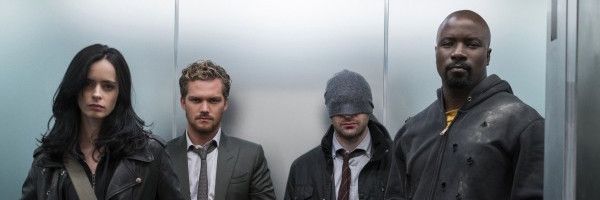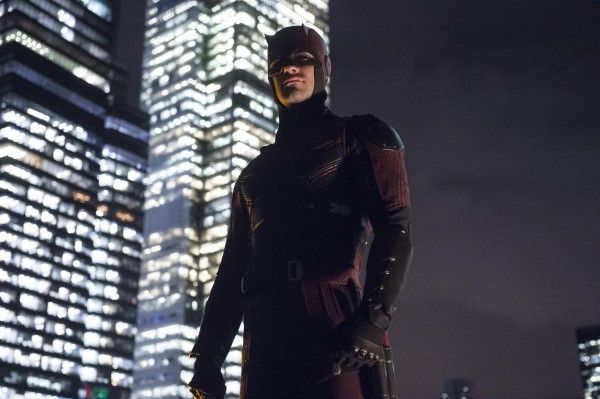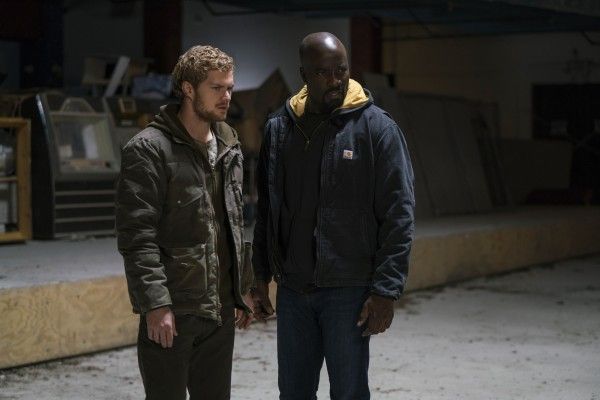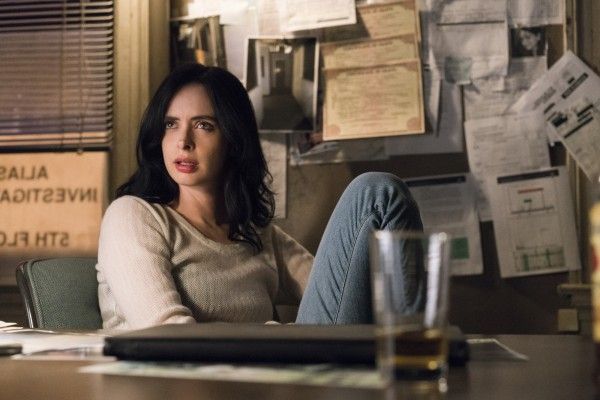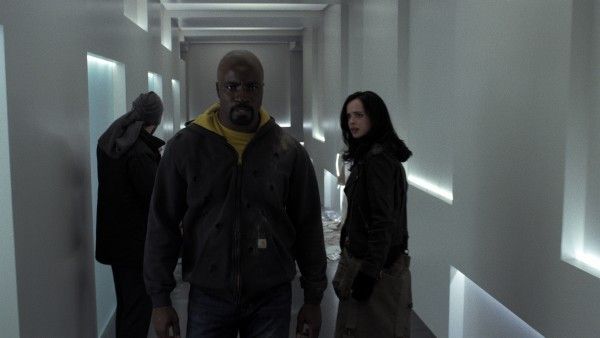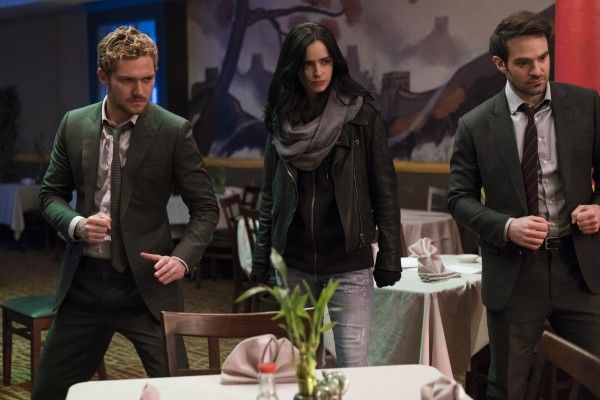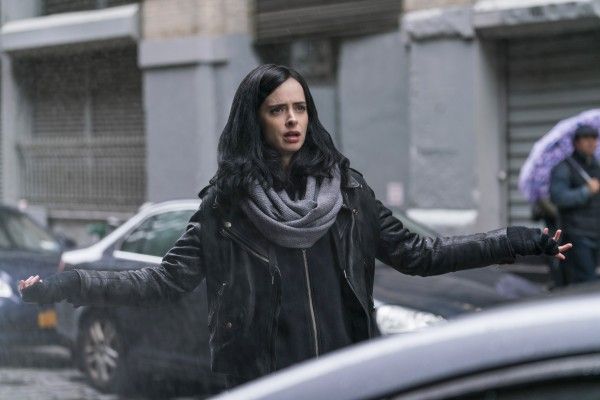Alas, poor Murdock! I knew him, Horatio. We come not to bury these heroes, but to praise them. With the announcement that Daredevil will not be returning for a fourth season, the future of Marvel’s gritty urban television experiment is pretty much null and void. Disney is rolling out their own streaming service next year, aptly named Disney+, and appears to be consolidating its properties for future use. What “future use” means is still up in the air – it could be the resurrection of these characters on Disney+ or Hulu (with new casts and stories, most likely), or simply deciding to save these heroes for eventual movie debuts. Also, while Daredevil, Luke Cage, and Iron Fist will not be returning, The Punisher’s second season and Jessica Jones’ third are still in development and will be released on Netflix in the coming months ... and then probably immediately cancelled. So even though it may be a little premature, it’s still safe to go ahead and bid this universe a (mostly) fond farewell.
Marvel’s Netflix shows managed to create a universe that was – because it was separate from the films – able to explore the gritty realism of a superhero’s life on the streets. Themes of sexual abuse, victimization, gentrification, substance abuse, and other mature topics were all explored alongside bone-breaking, gory vengeance. Here we had heroes who weren’t flying through the carefree skies of the world, but rather nursing addictions, mending broken bodies, and/or coming to grips with their religious upbringing and Catholic guilt. It made characters feel a little more real than some of their movie counterparts, often because we had more time to learn about them and their lives, where they became more relatable (Perhaps too much time, though … more on that in a moment). While Matt Murdock’s background happened to include a mystical ninja death cult and Luke Cage’s bulletproof skin resulted from an egregious, unethical prison science experiment, these comic book origins didn’t stop audiences from being able to feel connected to their stories. Their worlds were our worlds; their New York was our New York, and the universe was the better for it.
I would be remiss if I didn’t also take the opportunity to praise one of the most successful aspects of the Marvel Netflix experiment outside of the heroes. That would be the villains, of course. Vincent D’Onofrio and David Tennant as Wilson Fisk (a.k.a.The Kingpin) and Zebediah Killgrave, respectively, brought to life two characters whose adulthoods reflected their damaged childhoods, unable to heal from their past and taking out their aggression on the world through fear and influence. The Kingpin was the perfect foil for Charlie Cox’s Matt Murdock, attempting to reshape New York City in his image while barely managing to contain his anger. D’Onofrio’s performance as Fisk was a master class in acting, with the larger-than-life mob boss’ physical stature jumping off the screen while simultaneously conveying a character who was always uncomfortable in his own skin. Tennant’s Killgrave took an opposite approach, confident in his malevolence and placing Krysten Ritter’s Jessica Jones in a mental prison that lasted long after he released her from his psychic puppetry. That served as a baseline for an extraordinary exploration of PTSD and abuse that further grounded Ritter's exceptional performance as the badass, conflicted, hard-drinking Jessica. These two villains were hands-down the best n’er-do-wells that the Marvel Cinematic Universe had to offer, although Mahershala Ali’s Cottonmouth and Alfre Woodard’s Mariah were powerhouses in their own right. And then there was The Punisher.
Jon Bernthal’s performance as Frank Castle, a.k.a. the Punisher, managed to be the shining star of Daredevil’s second season, as he delivered what might have been the greatest scene of the Netflix Marvel series overall. After killing a gaggle of gangsters in New York City’s Hell’s Kitchen, Castle finds himself beaten and exhausted, having a candid conversation with the fully costumed Matt Murdock in a nearby cemetery. It’s here that Bernthal was able to perfectly convey the tragedy of the Punisher, a family man whose life in the military and catastrophic loss pushed him into a path of vengeance that he’ll never be able to escape. Blubbering and vulnerable, Frank recalls his return home from overseas, welcomed back by his daughter in her class, “holding him up” as he no longer had the emotional strength to keep moving forward, unable to recognize the world he’s returned to. The delicate homecoming is shattered into a grim reality after a few short days when Castle’s daughter, this same pillar of his being, was now dying on the ground in front of him, laying bare the horror that he would have to live with every day for the rest of his life. It’s an absolutely amazing character moment, and is something we 100% could not have gotten from the MCU films that don’t dabble in this kind of darkness. It’s also one of the best examples of the emotional side to this Marvel-Netflix universe that was often its saving grace.
Have you noticed how I haven’t mentioned Iron Fist yet? While the death of Marvel’s Netflix series is tragic in so many ways, I doubt many will be mourning The Immortal Iron Fist, Protector of K’Un-L’Un, and Sworn Enemy of the Hand, which was repeated so many times during this first season that he might as well have had it tattooed on his forehead. There were some problems with Daredevil, Jessica Jones, and Luke Cage, sure, but none represented the shortcomings of this universe more than the story of Danny Rand. In the first season of Iron Fist, we were given an absolute mess where the themes found in its MCU predecessors were missing in action. In their place were awful displays of acting, embarrassing martial arts set pieces, and a thirteen-episode trainwreck that had you begging for its end as you prayed for the Meechums to just get on with whatever their nefarious plans were already. Iron Fist seemingly infected the rest of Marvel Netflix from this point forward, bizarrely being the focal point for what should have been the breathtaking crescendo in the form of The Defenders.
The Defenders was obviously this universe’s answer to The Avengers, promising to unite our heroes with a threat that none of them would be able to handle on their own. What we got instead was a plodding arc that managed to incorporate all of the weaknesses of the universe, while ironically being much shorter than the individual seasons at a mere eight episodes. Defenders was mostly confusing, deciding to focus on Danny Rand and his fight with the Hand, and leaving little for Luke Cage and Jessica Jones to do. It threw a few bits in for Matt Murdock, based on his relationship with Elektra, but I am still wondering what on earth they were trying to convey with her character. A magical ninja death cult -- with the promise of mystical resurrection powers and a “sky’s the limit” threat level -- was instead boiled down to a few masked goons with pea shooters, and a confused Sigourney Weaver who was wasted in her role. If there were “five fingers” of the Hand, she most certainly must have felt like the middle one. Defenders landed with a whimper, and what should have been seen as a monumental event (especially for a universe that hates crossovers) instead came and went with little to no fanfare.
From there, Netflix’s Marvel outings were mostly just ok with Luke Cage, Jessica Jones, and Iron Fist returning for second seasons, and Frank Castle getting his own series (which, while good, could have been great if it simply had cut its episode count – the true lasting impression of Marvel’s Netflix experiment). Daredevil’s third season, ironically, is arguably the best season that the Marvel has delivered on Netflix … only for it to act as a death knell, as Daredevil was then cancelled shortly after its release, along with Luke Cage and Iron Fist. What is truly a shame is that this universe seemed to be learning from its mistakes, and considering how amazing Daredevil’s third season was, it appeared to have a blueprint for how to break free from them. As previously mention, while there is a third season of Jessica Jones and a second season of The Punisher in the works, they are unlikely to last beyond that. It’s a shame we won’t get a grand finale where all our heroes team up for one last adventure, but to be honest, this all started with Daredevil – so announcing the end after the high note that was Season 3 feels apropos.
In summation, I blame everything on Iron Fist. I kid, but certainly, the series represented in a nutshell everything that was wrong with Marvel’s Netflix series. On the other side of the coin, Jessica Jones’ first season, along with Daredevil’s third and parts of Luke Cage’s first, represent the best that these heroes have to offer. Overall, it was a worthwhile experiment, managing to deliver a stable of superhero series that focused on heavy themes and flawed characters -- even though it was always bogged down by the need to have each season span thirteen episodes, along with sloppy, incongruous mysticism. However, these series were ultimately able to find their heart during some truly emotional moments, when the heroes were at their most vulnerable, struggling with both internal and external threats. In the end, they were given too much time, and then, not enough.
R.I.P. Marvel Netflix -- 2015 to (presumably) 2019.

